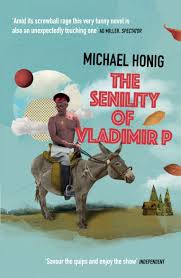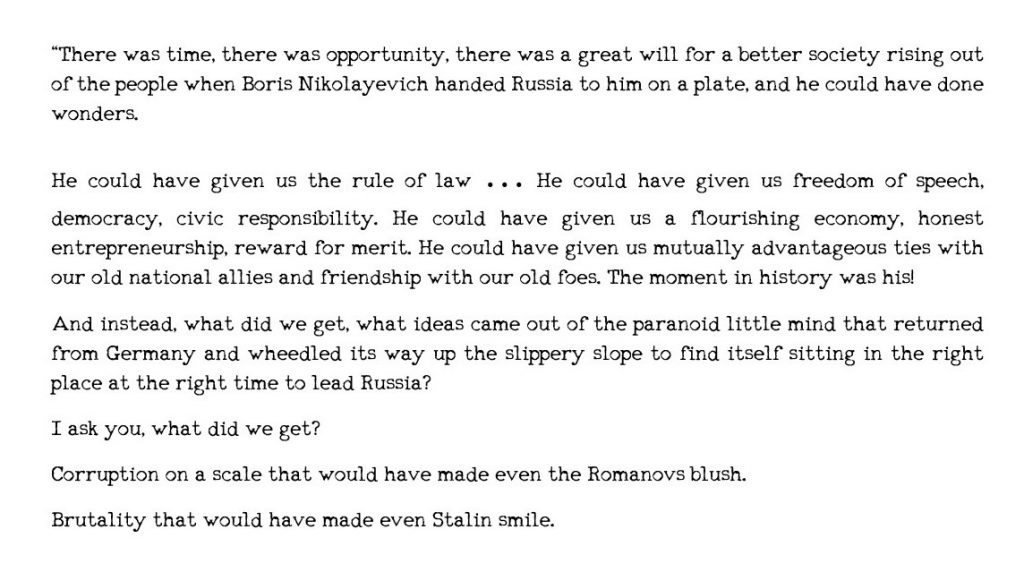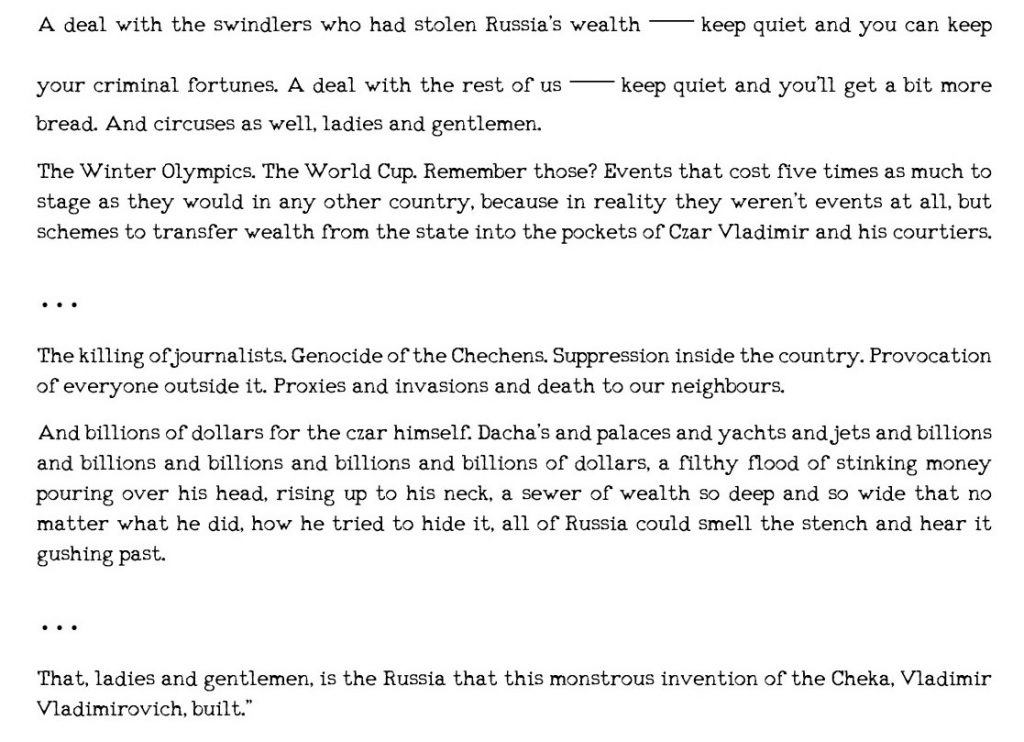Part one of this review is here.

As The Senility of Vladimir P. progresses, both the story element and the Russia-in-fiction element get progressively more serious. Nikolai Sheremetev, full-time nurse to a dementia-afflicted ex-president Putin, is forced by events to question his good and simple approach to caring for his patient.
And these events are not simply stuff that happens, but come to be seen —as the scales of good-hearted naivety fall from Sheremetev’s eyes— to be endemic in the Russia that Putin created.
In the early chapters of his short novel, The Senility of Vladimir P., Michael Honig’s writing seems to emphasise the basic flesh and blood nature of Vladimir Putin. Here is a man who has been at the head of the world’s largest country for decades, but he is just a man. He gets old, he suffers from dementia, he needs help bathing and getting dressed.
Reading these sections had me humming the opening lines of Randy Newman’s song Putin. It features on this blog’s Spotify playlist if you want to check it out.

Job 
Putin
Nikolai Sheremetev begins to seem like the biblical Job, as event after event tears apart his virtuous world, striking ever closer to home. Soon Pasha, the son of Nikolai’s much-loved brother, is in prison for writing something scurrilous about the Russian state. To gain his release requires a bribe, the value of which has been calculated on the basis of Sheremetev’s presumed access to some of Vladimir Putin’s immense riches.
In Honig’s novella, the Putin years are ones of opportunity forgone and venality victorious.
The narrative theme of both the story and its depiction of Russia come together in the article written by Sheremetev’s nephew, Pasha, that leads to Pasha’s imprisonment and Sheremetev’s crisis of morality.


Sheremetev was stunned, equally impressed and appalled by what he had read. ‘I didn’t know Pasha could write like that,’ he murmured.
The Senility of vladimir P.
Of course in the world of history and scholarly analysis a multitude of themes exist to be explored when considering developments across the decades in the world’s largest country. Achievements can be weighed against failures and people will argue about which is which. Whatever you think of Vladimir Putin, comparisons with Stalin’s brutality don’t stand.
But lest we forget, this is not a work of political analysis; it is a work of fiction. And the letter written by Pasha need not be read as Michael Honig’s reasoned thesis, but rather as a plot device — an article written by an angry youth with sufficient accusatory venom to see him arrested by a post-Putin authoritarian Russian regime.
Lengthy discourse on the accomplishments and catastrophes of the Putin era in Russia is too much to ask of a short work of fiction, even one so beautifully crafted as The Senility of Vladimir P. What remains from reading this fable of 21st century Russia is a heartfelt lament on the theme of Putin’s legacy and Russia’s lost years.
Part one of this review is here.

